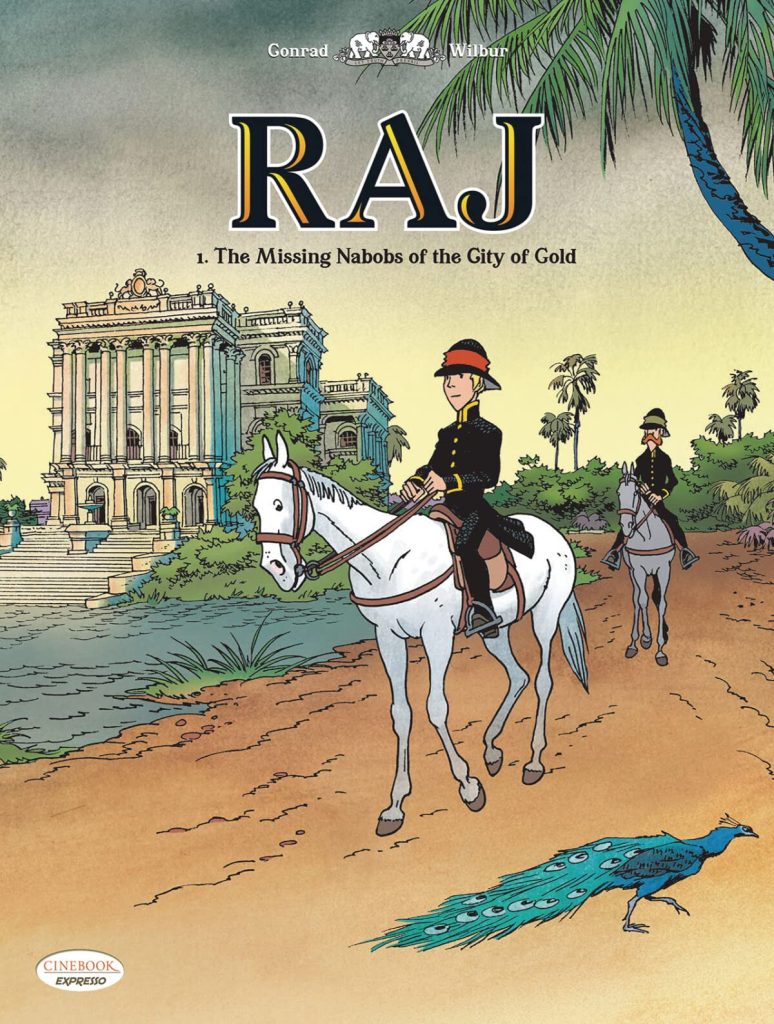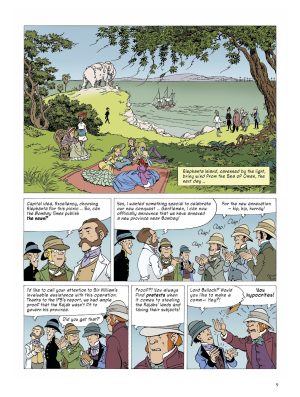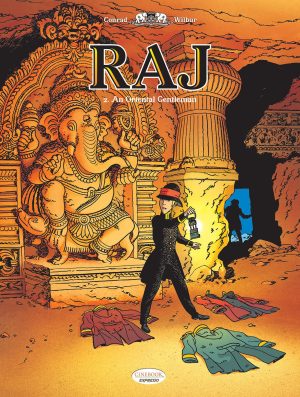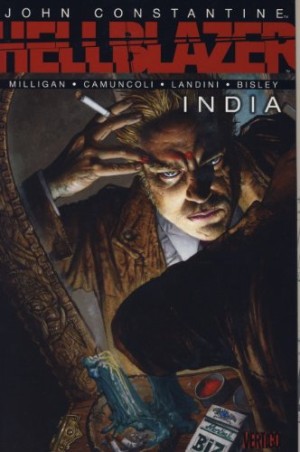Review by Karl Verhoven
Creators of Franco-Belgian graphic novels have a mystifying fascination with Britain. Many of Tintin’s adventures begin at Captain Haddock’s English estate, former army officer Clifton causes havoc across the UK, and Blake and Mortimer representing the educated British gentlemen of the 1940s and 1950s are just three examples. Now we can add Raj to the list, a two part mystery set during British occupation of India.
It’s written by the husband and wife team of Didier Conrad and Sylvie Commenge (operating under the alias of Wilbur), with Conrad handling the art, and is immediately interesting for not adhering to the British version of their time in India during the 1800s. British officials are shown as considering their duty being to enrich the East India Company’s coffers, although one Lord Bullock aggressively breaks ranks with his peers by pointing out the uncomfortable truths of deception. “Once the natives realise that the more they work for us the poorer they get”, he declaims, “we’ll see how long the Empire lasts”.
The narrative viewpoint is that of the newly arrived Alexander Martin whose claim that he asked to be posted to Bombay instantly raises suspicion with the scheming Sir William Lawrence, head of the Indian Political Service. In a convincingly researched period piece, Martin is written as a capable young man with a curious mind, yet his intentions are kept from readers. Is he as innocent as he seems? However, not all the characterisation is as careful, with fellow officer Warren Longfellow too obviously an idiot, taking the Captain Haddock role as a bumbling form of comic relief in a story that doesn’t require it.
Conrad is such an accomplished artist he’d later be selected to continue the adventures of Asterix following Albert Uderzo’s retirement, but uses a more relaxed style to illustrate Raj. There’s the same attention to detail here, but nowhere near as much movement, Hergé’s shadow free art more of an influence than Uderzo.
As the album title suggests, a mystery evolves when several British nobles go missing in succession. Lawrence sees it as an opportunity to settle some scores and remove some nuisances, but Martin is more concerned with investigating the circumstances than fitting anyone up. The resolution will have to wait for An Oriental Gentleman, but the intrigue is maintained throughout this attractively drawn story ensuring it’s a desirable purchase.





